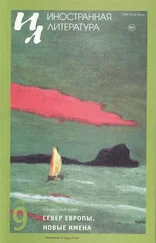Tim Parks - Goodness
Здесь есть возможность читать онлайн «Tim Parks - Goodness» весь текст электронной книги совершенно бесплатно (целиком полную версию без сокращений). В некоторых случаях можно слушать аудио, скачать через торрент в формате fb2 и присутствует краткое содержание. Год выпуска: 1994, Издательство: Grove Press, Жанр: Современная проза, на английском языке. Описание произведения, (предисловие) а так же отзывы посетителей доступны на портале библиотеки ЛибКат.
- Название:Goodness
- Автор:
- Издательство:Grove Press
- Жанр:
- Год:1994
- ISBN:нет данных
- Рейтинг книги:3 / 5. Голосов: 1
-
Избранное:Добавить в избранное
- Отзывы:
-
Ваша оценка:
- 60
- 1
- 2
- 3
- 4
- 5
Goodness: краткое содержание, описание и аннотация
Предлагаем к чтению аннотацию, описание, краткое содержание или предисловие (зависит от того, что написал сам автор книги «Goodness»). Если вы не нашли необходимую информацию о книге — напишите в комментариях, мы постараемся отыскать её.
, to get his life back on the rails again.
Goodness — читать онлайн бесплатно полную книгу (весь текст) целиком
Ниже представлен текст книги, разбитый по страницам. Система сохранения места последней прочитанной страницы, позволяет с удобством читать онлайн бесплатно книгу «Goodness», без необходимости каждый раз заново искать на чём Вы остановились. Поставьте закладку, и сможете в любой момент перейти на страницу, на которой закончили чтение.
Интервал:
Закладка:
I drove over in excruciating traffic to the banana republic of Hackney, aiming to winkle out the ever phoneless Peggy and take her over to Park Royal to help out. In the event, however, the gipsy painted third-floor door of her bedsit was answered, not by my sister, but by a rather stout Indian woman, the kind with a beachball of brown belly showing through gaudy drapes and a neat red bullet-hole in her forehead. She was holding the lardy and wriggling young Frederick, while her own (presumably) two small girls peeped duskily from behind her sari — beyond which, a backdrop of carelessness and charity-shop makeshift. I noticed a saucepan on the carpet, for example, a newspaper torn to shreds.
Peggy had a job, the woman said. Where, doing what, how could I get there? She didn’t know. Which again is typical of Peggy. She gets a babysitter and then doesn’t bother to explain how she can be contacted. What was the woman supposed to do if the child fell ill, if there was an emergency? But Peggy always imagines all will go well. This was what she had taken over from our childhood religion I suppose: faith. Well may it serve her. Still it was good to think there was another income in the family.
I drove over to Gorst Road, another hour simply tossed into the maw of the capital’s time-gobbling traffic system, and had to wait a further five minutes for Mother to drag herself down to the front door, since I’d forgotten my own keys. She was quite ashen and complaining, very unusually for her, of crippling stomach pains. Had she seen a doctor? No she hadn’t and didn’t want to. It was just a bug. But she must go and see her doctor. For heaven’s sake! She wouldn’t. But. . She wouldn’t. She hated doctors. God would take her in his own good time. My mother actually said that. I hugged her all the same and half carried her in her nightie to the sofa; then went up to see Grandfather; the stink on the landing, however, told me more than I needed to know and I went back downstairs.
Mother had now stretched out on the couch. ‘I’m sorry,’ she whispered. ‘And the social services, for Grandfather, have you been in touch?’ Apparently a social worker would come in the next couple of days. ‘So we should take him to hospital. Immediately. Where they can look after him.’ But he didn’t want to go to hospital, she said. He refused. He’d shout and scream if you tried. ‘I’m sorry,’ she said again. She closed her eyes and sighed, holding her stomach. I thought: ‘Incredibly, these two people are my responsibility. This is my family. And I’m supposed to be meeting my contact from Tektronics for an early lunch.’ I asked: ‘Isn’t there anybody from the church could help?’ She shook her head. There was, but they were on holiday.
For a moment I stood helpless in the dark cave of my childhood sitting room, trapped again: the photographs, the Wedgewood, the dusty naïveté of the Hummels, the sullen rhododendrons outside the window, and, blending it all together, an all-pervading sense, which was also a smell, of brown. Somehow the place stank of brown. There I stood. Until the obvious occurred. There is nothing you can’t pay your way out of. And even though it was going to be expensive, I moved to the phone.
That evening I finished work as early as I could and drove to Gorst Road for about seven to check that all was well and we were getting our money’s worth. The nurse was tall and pleasantly bulky, her hair done up in a bun on a long thick neck, one of those women who carry weight well, moving about with a crisp rustle of uniform and tights faintly chafing together between strong legs. In her early thirties, I guessed, efficient, assured, getting through. ‘Will do, Mr Crawley,’ she said in response to some request or other, and I told her to call me George.
Upstairs I found Mother asleep in her green nylon sheets (Shirley would wince just at the thought) and the passageway beyond now smelling almost sweetly. I looked in on Grandfather to find him sitting up with the Express. Every piece of clothing, towel, dressing-gown, string vest, was neatly, femininely folded. Even the old man’s still black, rather fierce hair was combed flat, his cheeks shaved. He looked surprisingly virile, as if he might spring up into action at any moment. I smiled. ‘Had to get a nurse in,’ I said. ‘Bit expensivo, but there you go.’ He looked at me quizzically. ‘Good day at the office?’
I thought of the nurse talcing his loose old balls and bum. I thought, if only one could afford the service on a regular basis, family life could be made quite pleasant. In our own case, as long as it wasn’t for more than two or three nights, it would be worth every penny. And on the way downstairs, noting how the threadbare patches were bigger now, the bannister rail looser, it occurred to me that I might have sex with this nurse. Why not? I could tell Shirley I had to stay the night with Mother and I could perhaps get a leg over in mine and Peggy’s old room. That should exorcise a few ghosts.
Her name was Rosemary. I went out and bought stuff for her to prepare herself some dinner (thanks to Shirley I am actually quite an astute shopper) and we ate together over fantasy Formica in the kitchen and talked. It was really most pleasant, Rosemary’s company, a quite unexpected treat. I felt so easy, so relaxed, I amazed myself. Especially since I had been wondering recently whether I didn’t need tranquillisers. She explained, when I marvelled at all the little extras she’d done, that nursing wasn’t her vocation at all, she had wanted to be a pianist. She had trained and trained and very nearly made it, but not quite. Then not having quite got married either, she had decided she must have a safe source of income. She had taken up nursing, but signed on with an agency, rather than staying with the NHS, ‘to be flexible’, she said. Now she quite liked the job in a curious sort of way. My grandfather, for example, had been terribly sweet, had told her all kinds of interesting stories.
I didn’t object. I listened, and listening, supping whatever cans I’d found in the local subcontinent emporium, I remember being delighted by the straightforwardness of all this, another life unfolding so sensibly, so poignantly; and as so often when I meet a new woman, regardless of looks, I realised that this was the woman I should have married: cheerful, practical, generous, talented, not overly bitter about her disappointments, getting on. She had large white sensible teeth, long pale fleshy hands that seemed to have a quick active almost animal life of their own. There was something nervously vibrant about them as they lay still on the tablecloth, like starfish almost, damp, soft, alive. No nail varnish. No frills. This is what I should have gone for.
After eating, she asked permission, lit up a cigarette and then, for no reason I could see, simply smiled directly at me. Her lips, which weren’t well defined, had a rather sad wise twist, blowing out smoke. Her cheeks were full. And I recalled something I’d been thinking lately, on a bus somewhere, watching somebody kiss somebody: that all young women, however apparently plain or even ugly at first glance, all have their little attractions, their charms, their lures, not one without some way of catching your eye: a ready smile of complicity, a way of cocking the head so that hair falls to one side (why does this attract me so much?), a way of lightly touching your wrist perhaps, or of taking a knuckle in the mouth to laugh. One way or another, and consciously really I often think, they compensate for what they may not have, that archetypal body. So with Rosemary, her frank friendliness, utterly without flirtation, her acceptance of you, without any of the barriers of male-female social manoeuvring ( viz Joyce, the more unnattainable the gigglier and flirtier she became), all this seemed to draw attention to the large fleshy presence of her body as something straightforward, animal, loveable, that might well embrace you, without difficulty, without anxiety, if only it could be unlocked from that angular uniform.
Читать дальшеИнтервал:
Закладка:
Похожие книги на «Goodness»
Представляем Вашему вниманию похожие книги на «Goodness» списком для выбора. Мы отобрали схожую по названию и смыслу литературу в надежде предоставить читателям больше вариантов отыскать новые, интересные, ещё непрочитанные произведения.
Обсуждение, отзывы о книге «Goodness» и просто собственные мнения читателей. Оставьте ваши комментарии, напишите, что Вы думаете о произведении, его смысле или главных героях. Укажите что конкретно понравилось, а что нет, и почему Вы так считаете.












